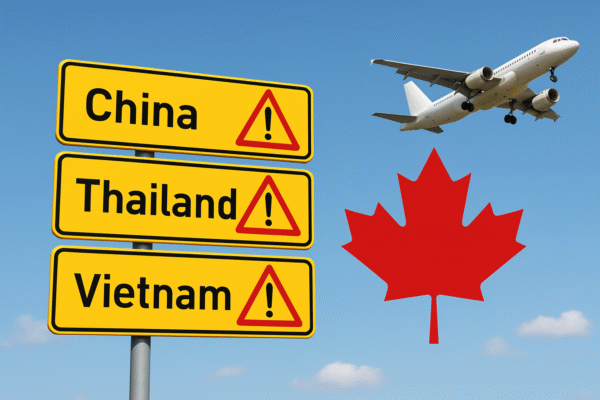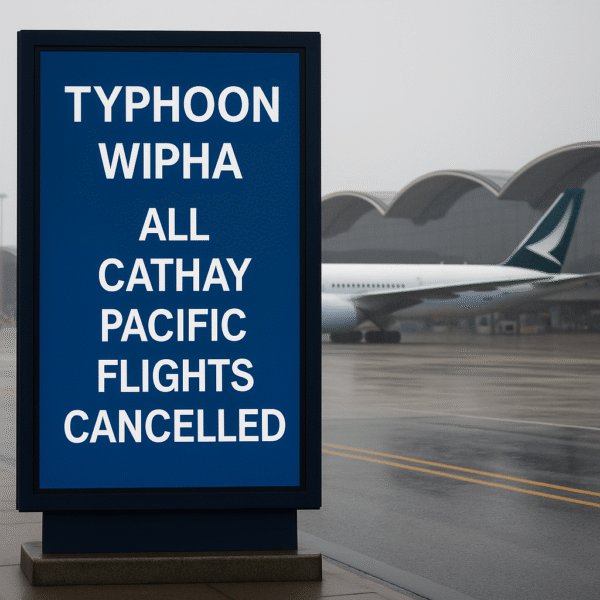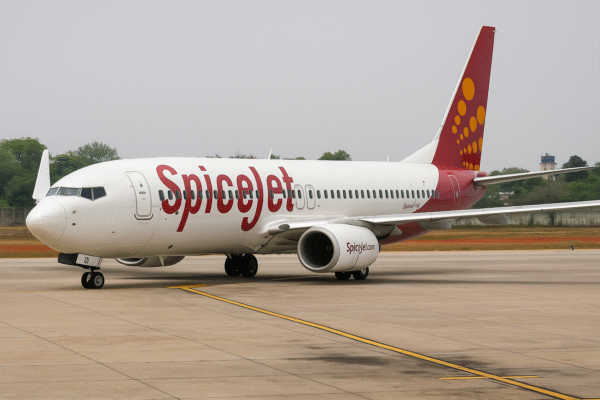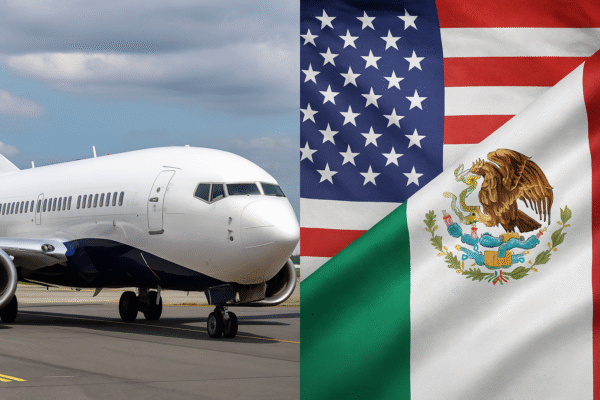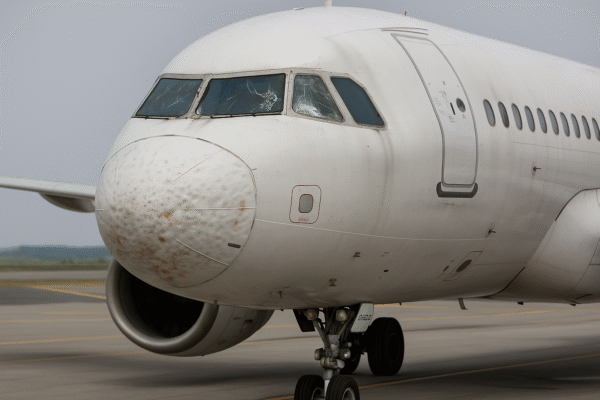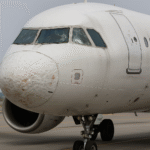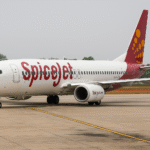U.S. Enforces New Flight Restrictions on Mexican Airlines Amid Airport Slot Dispute and Bilateral Aviation Tensions
Diplomatic tensions between the United States and Mexico have escalated following the U.S. Department of Transportation’s (DOT) implementation of a sweeping set of aviation restrictions targeting Mexican airlines. The crackdown reflects longstanding concerns about unfair competition and a lack of transparency surrounding airport slot allocations and cargo operations at Mexico’s busiest airports.
Key Measures Tighten Regulatory Oversight of Mexican Carriers
Effective July 2025, the DOT now requires all Mexican airlines operating flights to and from the United States to submit detailed flight schedules in advance. The directive also mandates that any large aircraft charter services, whether for passengers or cargo, must obtain prior DOT approval—significantly reducing operational flexibility for Mexico-based carriers such as Volaris, Viva Aerobus, and Aeromexico.
Officials say the new rules are a direct response to what they view as violations of the U.S.-Mexico Air Transport Agreement of 2015, particularly surrounding fair competition and airport access. At the heart of the dispute lies Mexico’s reassignment of key airport slots at Benito Juárez International Airport (MEX) and the forced relocation of all cargo operations to Felipe Ángeles International Airport (NLU).
Delta-AeroMexico Joint Venture Under Threat
The most high-profile consequence of the rising friction is the potential revocation of antitrust immunity for the joint venture between Delta Air Lines and AeroMexico. This transborder partnership, established in 2016 with regulatory approval, allows the two airlines to coordinate routes, pricing, and schedules. However, the DOT is now considering terminating that immunity, citing unfair market conditions caused by unilateral Mexican government interventions.
If the immunity is revoked, both carriers would need to revert to independent operations on U.S.-Mexico routes. Delta would maintain its equity stake in AeroMexico, but the strategic alignment of services across the border—especially vital to business travelers and frequent flyers—would be dismantled, likely raising airfares and reducing route efficiency.
Controversial Slot Reassignments Triggered the Dispute
Much of the current dispute stems from the 2022 decision by Mexico’s aviation authorities to revoke key takeoff and landing slots at Benito Juárez Airport. U.S. carriers—American Airlines, Delta, and United—as well as Mexican airlines, lost access to historical slots without what U.S. officials consider due process or clear justification. Mexico cited overcapacity and airport congestion as the rationale, but the U.S. contends that the move violated bilateral agreements and lacked transparency.
Since then, American officials have demanded clarity on when those slots will be restored, or if permanent replacements will be offered. As of July 2025, there has been no satisfactory response from Mexican aviation regulators.
Cargo Carriers Hit by Forced Relocation
Another point of contention has been the February 2023 executive decree from Mexico’s government requiring all dedicated cargo operations to move from Benito Juárez Airport to the newly constructed Felipe Ángeles International Airport. Intended to relieve congestion at MEX, the mandate caught many international cargo operators off guard.
U.S. logistics companies such as FedEx and UPS expressed concern about inadequate infrastructure and connectivity at Felipe Ángeles, which is located approximately 45 kilometers northeast of Mexico City. The International Air Transport Association (IATA) and the U.S. Chamber of Commerce criticized the abrupt nature of the relocation, warning it could disrupt supply chains and erode trade competitiveness.
DOT Alleges Breach of International Agreements
According to a formal statement released by the DOT, Mexico’s failure to implement an impartial, transparent airport slot system contravenes Article 11 of the 2015 U.S.-Mexico Air Transport Agreement. This clause obligates both nations to ensure fair treatment of carriers and to avoid discriminatory practices in slot management and airport access.
The DOT has also cited a lack of progress on safety oversight issues flagged by the Federal Aviation Administration (FAA) in past assessments. Although Mexico regained its Category 1 aviation safety rating from the FAA in 2023, U.S. regulators remain cautious about recurring procedural deficiencies.
Diplomatic Dialogue Ongoing, But Resolution Elusive
Bilateral discussions remain ongoing, with negotiators from both nations seeking a path forward that preserves air connectivity while respecting sovereign policy decisions. U.S. officials have emphasized that while their actions are regulatory in nature, the overarching aim is to safeguard the principles of open skies and reciprocal market access.
For its part, the Mexican government has maintained that the Felipe Ángeles cargo relocation and slot reallocation at MEX were made to optimize capacity and meet long-term transportation needs. Officials have pointed to increased investments in airport infrastructure and modernization efforts at secondary hubs.
Industry and Travelers Caught in the Middle
The standoff places airlines, shippers, and travelers in a state of uncertainty. Should the Delta-AeroMexico partnership be dismantled, competition on high-demand transborder routes—such as New York-Mexico City and Los Angeles-Guadalajara—could diminish, potentially raising costs for passengers and reducing flight availability.
Meanwhile, cargo operators are adapting to the new landscape, with some shifting operations to regional airports like Toluca or Guadalajara to mitigate the challenges posed by the move to Felipe Ángeles.
Conclusion
The latest flight restrictions imposed by the U.S. on Mexican airlines underscore a widening rift in cross-border aviation governance. As Washington pushes back against what it sees as anti-competitive practices, the stakes are high for both nations’ travel and trade sectors. Whether diplomacy or further regulatory action will prevail remains to be seen.
For more travel news like this, keep reading Global Travel Wire






